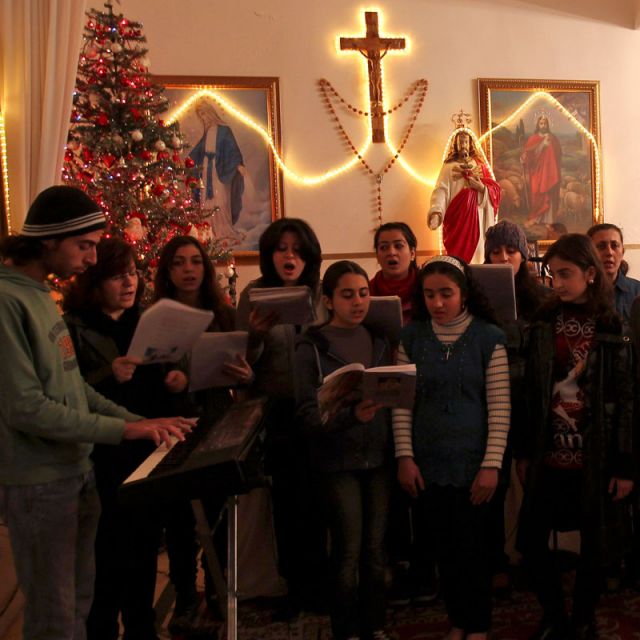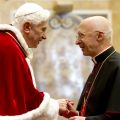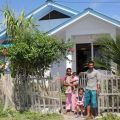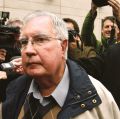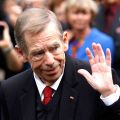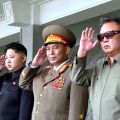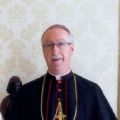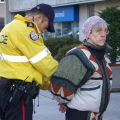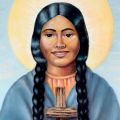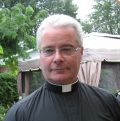NEWS
LONDON - Chaldean Catholic officials have canceled traditional Christmas Eve midnight Masses because of security risks.
Chaldean Archbishop Louis Sako of Kirkuk in northern Iraq told the agency Aid to the Church in Need that Christians will spend Christmas in "great fear" because of the risk of new attacks.
All services and Masses have been scheduled for daylight hours, he said in an interview with Rome-based AsiaNews.
Pope points to joyful lessons learned from World Youth Day, Benin trip
By Cindy Wooden, Catholic News ServiceVATICAN CITY - Knowing one is loved by God gives life meaning and gives one the energy needed to carry on with joy, even in difficult personal or societal situations, Pope Benedict XVI told top Vatican officials.
Meeting members of the Roman Curia Dec. 22 for his annual exchange of Christmas greetings, the pope said the "faith fatigue" seen in various areas of church life contrasts sharply with the faith and joy he witnessed during World Youth Day in Madrid and during his November trip to Benin.
The two trips, he said, hold lessons for church leaders and for the faithful.
New homes help tsunami survivors adjust to changed circumstances
By Anto Akkara. Catholic News ServiceBANDA ACEH, Indonesia - Squatting inside his small home in the fishing hamlet of Alua Naga near the city of Banda Aceh, Hussein Sweid knitted together a fishing net, preparing for his next venture out to sea.
"This is a new life and I am slowly coming in terms with it," Sweid, 45, said, surrounded by his family: a wife of four years and two daughters, both now almost 3 years old.
Tears welled up in his eyes as he recalled how he lost four of his five children and first wife in the Dec. 26, 2004, tsunami when the sea rose up to 38 feet, submerging much of westernmost Indonesia's island of Sumatra.
"Only my (10-year-old) daughter survived because she was with the grandparents (in another city) at the time," Sweid said.
Psychiatrist says disgraced Bishop Lahey not a pedophile
By Deborah Gyapong, Canadian Catholic NewsOTTAWA - Disgraced Bishop Raymond Lahey engaged in a number of homosexual “one-night stands” before settling into a 10-year relationship with a man, according to testimony Dec. 19 at Lahey’s sentencing hearing on child pornography charges.
Court also heard that Lahey has an addiction to Internet pornography but is probably not a pedophile and poses a next-to-zero chance of offending sexually or violently against children, according to a forensic psychiatrist. Dr. John Bradford, who examined Lahey, said Lahey has gay sadomasochistic fantasies where he is the submissive partner, although Lahey claims he has never acted on them.
The former Antigonish bishop, 71, pleaded guilty last May to possession of child pornography for the purpose of importation. He opted to go directly to jail before sentencing and has served seven and a half months.
New Chancellor of Temporal Affairs appointed
By Catholic Register StaffJames Milway is to join the archdiocese in the spring, replacing outgoing chancellor John McGrath.
Milway is certainly no stranger in archdiocesan corridors. Over the past decade, he has had extensive consulting assignments with the archdiocese, including projects related to World Youth Day 2002, ShareLife, Catholic Charities and Catholic Cemeteries. He is currently working on the archdiocese's strategic planning process, and "his knowledge and experience working with us both past and present will be a tremendous asset as he begins his new assignment," said Toronto Archbishop Thomas Collins in a statement.
Though Milway currently lives in the Hamilton diocese, his connection to Toronto runs deep. His formative years were spent here and he was educated at the University of St. Michael's College. His five children were born at St. Michael's Hospital and all were baptized in the archdiocese.
"I've been fortunate to work with many parts of the Chancery Office in my consulting career and look forward to reconnecting with the many friends I have there," said Milway.
"It will be tough to follow John McGrath — he's been such an effective Chancellor and I know he will be missed. But he and his predecessors have developed a strong foundation for someone like me to build on. I hope to follow well in their footsteps."
Milway has been executive director of the Institute for Competitiveness and Prosperity, a think-tank sponsored by the province of Ontario and the Rotman School at the University of Toronto, and spent 15 years with the Canada Consulting Group & Boston Consulting Group, including three years as vice-president.
McGrath will continue working with the archdiocese "for a reasonable period" to ensure an orderly transition, said Collins.
Prague archbishop remembers Havel as friend, 'fellow prisoner'
By Catholic News ServiceArchbishop Dominik Duka of Prague, who was imprisoned with Havel by the communists, asked that the bells of all Catholic churches in the Czech Republic ring at 6 p.m. Dec. 18 in memory of the former president who died that morning at the age of 75.
The archbishop, who met Havel in prison in 1981 and continued to meet with him after the end of communism in 1989, was scheduled to celebrate Havel's funeral Mass Dec. 23 in St. Vitus Cathedral.
"He knew the loss of freedom, the denial of human dignity, oppression and imprisonment," Duka said in a statement posted Dec. 18 on the Czech bishops' web site. "I am convinced that everyone across the country, regardless of political or religious beliefs, owes him honour and thanks."
Havel, a playwright and essayist, was one of the founders of the Charter 77 movement, which began criticizing the communist government of then-Czechoslovakia, particularly for its lack of respect for human rights, in 1977.
He served four years of hard labour and nine months in prison for dissident activities before becoming head of state after the 1989 "Velvet Revolution" that toppled communism. He resigned in 1992 when Slovakia declared its independence, but was elected president of the Czech Republic six months later.
Havel met Pope Benedict XVI during the Pope's trip to Prague in 2009. He met Blessed John Paul II at least five times, three of them in Prague, and Havel attended the late pope's funeral at the Vatican in 2005. The two men admired one another and saw each other as participants in the same battle for freedom, human rights, human dignity and respect for the cultures of Eastern Europe.
In an interview with a Polish Catholic news agency in 2000, Havel said, "John Paul II is someone very close to me, who continually startles me with his personality and inspires me.
"His language, constantly stressing human dignity and recalling the rights of man, has been a novelty in the papacy's history. If the pope had been someone else, from another part of the world, without the historical experience of Poland, he probably wouldn't have had such a clear attitude to totalitarianism. John Paul II's services in this area are undeniable," he said.
He also told the interviewer that in April 1990 he made his confession to Pope John Paul during the pope's first Czech pilgrimage while under the spell of the pope's "charismatic personality."
"I suddenly realized I was in fact confessing in front of him, even though I'm not accustomed to going to confession, since I'm not a practising Catholic. I felt the need because of the great will to understand the other person that emanates from the person of the pope," Havel said.
L'Osservatore Romano, the Vatican newspaper, noted that Havel attended a Mass of thanksgiving in St. Vitus Cathedral immediately after his inauguration in 1989, restoring a practice Czech leaders had followed for centuries until the communists came to power.
"That ceremony was not only the recovery of an ancient liturgy that united politics and tradition, culture and religion, but represented the beginning of a new history, a history of freedom of which Vaclav Havel was the most important symbol," the newspaper said.
Bishops hope North Korea's regime change will bring peace, unification
By Carol Glatz Catholic RegisterBishop Peter Kang U-il of Cheju, president of the Catholic Bishops' Conference of Korea, said the leader's death Dec. 17 "may be the beginning of a turning point for the path of the reunification of the Koreas."
"We hope that the Lord gives the light and strength to the North Korean brothers so that there is a return for a policy focused on dialogue, peace and reconciliation," he said in an interview Dec. 19 with Fides, the Vatican's missionary news agency.
Bishop Lazzaro You Heung-sik of Daejeon, South Korea, told the Rome-based AsiaNews Dec. 19 that "we must focus on dialogue for peace but remain alert."
He said he feared the leader's death would prompt "a period of great confusion."
"Inside the regime, there will (be) a clash between the party and the army. The young age of the heir will not help a smooth transition," said You.
Kim's youngest son, 27-year-old Kim Jong-un, was declared the country's next leader.
Kim, who suffered a stroke in 2008, had ruled the reclusive communist state since 1994, following the death of his father, Kim Il-sung.
You said the new leader lacks the political experience needed to guide the country's relations with the United States, South Korea and China. He expressed concerns that the transition would not be smooth and that "a harsh conflict will break out now between the party, which is in the hands of the heir's uncle, and the military that are answerable to Kim Jong-un."
Too much political wrangling would mean the citizens of North Korea end up paying the price with continued poverty and deaths from hunger, he said.
"We must do our utmost to start sending humanitarian aid again and prevent more deaths from the situation. It is too soon to say what will happen on the Korean Peninsula, but we must pray and work so that peace wins," said You.
"We need to focus on dialogue now that a certain window of opportunity has opened up. We must pray for peace in Korea and the world, and use the Christmas season to remain vigilant but with a hand extended to our brothers in the North."
Fr. Baptist John Kim Hun-il, executive secretary of the Korean bishops' Subcommittee for Aid to North Korea, expressed hope that Kim's death would not plunge North Korea into further chaos, the Asian Church news agency UCA News reported. He also said that the bishops want to continue the committee's aid program to the North and that there might be the possibility of more openness within the secretive state that could lead to progress in reconciliation efforts.
After Korea was freed from Japanese rule at the end of the Second World War, it was split into the Soviet Union-backed communist North and the U.S.-supported South.
There have been no permanent resident priests or religious in North Korea since the Korean War started in 1950. In 1988, the government created the North Korea Catholic Association and built a Catholic church the following year. Occasionally, when Catholic clergy are allowed to visit the North, they are permitted to celebrate Mass in the church, but no one knows how many Catholics remain in the North.
The North is deeply impoverished and although churches are tightly controlled, Caritas Internationalis — the Vatican-based confederation of national Catholic charities — has been working in the North for more than 15 years. The help began when a series of floods in 1996 led to severe famine that lasted for years.
Bishops move ahead on two-stage pastoral plan for life and family
By Deborah Gyapong, Canadian Catholic NewsOTTAWA - The Canadian Conference of Catholic Bishops (CCCB) will proceed with a pastoral plan for life and family that will launch nationally in 2013 after a preparatory year in the dioceses.
In a mid-December letter to his brother bishops, CCCB President Archbishop Richard Smith confirmed the CCCB’s Permanent Council has given the proposed plan a green light after reviewing the practical aspects of the decisions made at the bishops’ annual plenary meeting in October.
“I am happy to confirm that we will proceed, as we had all agreed, with the elements of the pastoral plan for 2013 and for a preparatory year during 2012,” Smith wrote.
Christmas in jail for Linda Gibbons
By Vanessa Santilli-Raimondo, The Catholic RegisterTORONTO - Pro-life activist Linda Gibbons will be spending her Christmas season in jail, having been arrested Dec. 16 for violating an injunction that barred her protests in front of Toronto abortion clinics.
The arrest comes just two days removed from Gibbons’ appearance before the Supreme Court of Canada as she tried to have the injunction barring her pro-life protests quashed. This injunction has led to some 20 arrests over the years and nine years of incarceration.
Gibbons began her latest protest around 9 a.m. at the Morgentaler Clinic near Bayview and Eglinton Avenues. Toronto Police arrested her about two hours later.
Pope clears way for Kateri Tekakwitha’s canonization
By Michael Swan, The Catholic RegisterWhen Canada’s first aboriginal saint is canonized, it will be an answered prayer for native people across Canada and beyond.
“There’s a natural sense of pride and joy,” among native people said Whitehorse Bishop Gary Gordon.
On hearing the news that Pope Benedict XVI had cleared the way for Blessed Kateri Tekakwitha to be canonized, perhaps as early as spring 2012, Gordon planned to phone his old friend Steve Point, the Lieutenant Governor of British Columbia. Point is a former elected chief of the Skowkale First Nation.
Hopes fade for Canadian Anglican ordinariate
By Michael Swan, The Catholic RegisterTORONTO - As hopeful Anglo-Catholic parishes across Canada completed two months of catechetical study Dec. 18, dreams of a Canadian Catholic ordinariate for ex-Anglicans are fading.
"We had hoped, of course, we would have our own Canadian ordinariate, but we realize our numbers may not warrant it," Bishop Carl Reid, Anglican Catholic Church of Canada auxiliary bishop, told The Catholic Register.
An American Anglican ordinariate will be inaugurated Jan. 1. About 2,000 former Episcopalians (as Anglicans are known in the United States) have asked to be received into the Catholic Church through provisions of the Anglicanorum Coetibus apostolic constitution.
The number of Canadian break-away Anglicans seeking a place in the Catholic Church has declined in the two years since Pope Benedict XVI issued Anglicanorum Coetibus, an apostolic constitution intended to provide for groups of Anglicans entering the Catholic Church but retaining significant elements of Anglican liturgy.
The main body that had been seeking union with the Catholic Church, the 28 parishes of the Anglican Catholic Church of Canada, split into two non-geographical dioceses Nov. 26. The pro-diocese of Our Lady of Walsingham contains parishes still engaged in the process for entering the Catholic Church. The remaining parishes in the diocese of Canada are taking a wait-and-see approach to the process, said Reid.
Substantial numbers of ACCC members have also left the Church as the prospect of joining a Catholic entity has taken shape.
"A number of our people who weren't clear when they joined us of our intention to seek unity — even though it is in our foundational documents, our constitution — when unity became not only a possibility but a reality they just sort of left," said Reid. "That reduced our numbers from what they were two years ago."
ACCC members in the pro-diocese of Our Lady of Walsingham understand that a handful of parishes, averaging between 20 and 30 members and spread across the country, can't justify a bishop and diocesan structure involved in an ordinariate, said Reid. They are waiting for word on just how they will be accommodated, he said.
Toronto Archbishop Thomas Collins, in charge of guiding the process in Canada, declined to comment.
"There are still some key details being worked out right now and, as you can imagine, this is a sensitive file," said archdiocese of Toronto spokesman Neil MacCarthy in an e-mail.
Among the issues being worked out are the final resting place of ACCC clergy. Where 67 Anglican priests in the United States have submitted dossiers seeking Catholic ordination and 35 have received a nulla osta, or initial approval, from the Congregation for the Doctrine of the Faith, none of the Canadian Anglican clergy who have applied have heard back from Rome.
"We're clearly further behind in the process than the Americans and the Australians," said Reid.
Without clergy, Anglican parishes accepted into the Catholic Church can't function, said the bishop.
Despite difficulties and uncertainty, the Our Lady of Walsingham Anglican Catholics remain hopeful, Reid said.
"Our people fully understand the divine mandate expressed by our Lord in John 17 'That they may be one.' And that's what's driving this whole process," he said. "Our remaining people here at the Cathedral (of the Annunciation of the Blessed Virgin Mary in Ottawa) are committed to the process and understand the importance from the perspective of what God's wish is, not what ours is."

